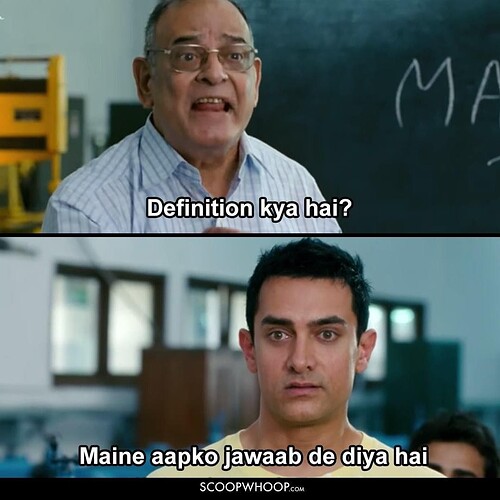I see the whole point of this thread is majorly on questioning or interrogating What is FOSS United about and everything we have been doing ?
I’d like to answer some questions if not all which you are certainly interrogating about. As I am someone who joined last year and since then I have been trying to find answers about what FOSS United does and here are some things I have found which make some sense.
How did this come inside FOSS?
The goal “To promote the spirit of hacking and tinkering” comes under the list of “FOSS United” goals, and not completely inside the term “FOSS”. I don’t really understand why would you try and correlate FOSS United’s goals with the definition of Free Software or Open Source ? Because FOSS United has the word “FOSS” included in it ?
I also think that the work “goal” also resonates to what an organization wants to work on. And here’s what I found on google about the work Free Software Foundation wants to do:
The Free Software Foundation (FSF) is a nonprofit with a worldwide mission to promote computer user freedom. We defend the rights of all software users.
source: Free software is a matter of liberty, not price — Free Software Foundation — Working together for free software
I’d like to ask: What does promoting computer user Freedom or defending the rights of all software users has to do with FOSS ? And if I’m not wrong at the first place according to the definition FOSS just means “having the freedom to run, copy, distribute, study and improve the software”.
Is this the goal for FOSS United the organization or the community that FOSS United is building?
I don’t see why the former one can’t be a reason, even if we do not have a lot of staff who write code, but there are certainly large number of volunteers who gave a helping hand in doing it. Please give this a read. From almost 4 years now, contributions to FOSS United are majorly done by a bunch of volunteers who willingly spend time in the community.
Another read I’d suggestion is this.
If so, then isn’t all FOSS public good automatically?
I think I agree with how you framed the co-relation from what is public good to relating FOSS being public good automatically and by-default.
But, How many NGO’s have programmers working full time ? Let me rephrase it, How many NGO’s feel the need of a programmer ?
RHA (Robin Hood Army) is a great example whose problem was solved by FOSS (Frappe in this case) and many others. I maybe wrong but I feel what FOSS United tried is bridging the gap between the NGO and the Free Software which helps.
My question for you would be, have you ever come across any student who is from the central or northern region of college ? Do you know how weird and dirty the culture in the northern engineering colleges ? I feel hesitated to ask whether have you ever seen the academia in the Northern or Central region of the country through the lens of a non-keralite (please do not consider this a jab) ?
From what I’ve seen is there’s already FOSS being used in majority of the Kerala institutes and schools in the form of Kite Linux. But I’m ashamed to tell you that in Maharashtra (where I live) students barely know What is Ubuntu.
P.S Please do not consider this as a jab or comparison between both the regions, its just what I’ve seen and experienced.
How do you expect FOSS United or anyone to just straightway go to college or students and tell them “You have to make a URL Shortner in Go and push it to coderberg” they’ll be damn clueless right ? And I am saying this after I’ve done this myself. In the beginning when I used to give talks at school and college’s regarding what is FOSS, why make and why use ? There was interest, but no action. They don’t care after they get out of the room.
The FOSS Club initiative was started to increase awareness in schools and colleges about Free Software and majorly to tell them what the hacker culture is. I’d like all the club leads to come forward and tell (if they’re comfortable enough) if the FOSS Clubs initiative had any impact or not.
To promote the spirit of hacking and tinkering.
Here’s my honest opinion on you calling this point “vague”. @nikkothari22 and two of his friends decided to build a slack alternative called raven and they did win, isn’t that a good result they transitioned into a team and company which they call The Commit Company now and have been working on and with FOSS for their official and open source projects.
There are campaigns like “public money, public code” in Europe
Can we please stick to the context of India ? The problem, the goal here moreover is with the Indian context.
Perhaps, in no manner or I wish to overstep your personal opinions on the goals we FOSS United had set earlier.
